
Sousse: The Pearl of the Sahel
Sousse, a vibrant coastal city in Tunisia, is often referred to as the 'Pearl of the Sahel'. Nestled along the Mediterranean Sea, Sousse boasts a rich history dating back to Phoenician times. The city is a fascinating blend of old and new, where ancient medinas coexist with modern resorts, providing a unique experience for visitors. The heart of Sousse is its Medina, a UNESCO World Heritage site. Wander through the narrow, winding streets and discover traditional souks, bustling with vendors selling everything from spices to handicrafts. The Ribat, a fortified monastery, offers panoramic views of the city and sea from its watchtower. A visit to the Great Mosque, with its striking architecture, is a must for history enthusiasts. For those seeking relaxation, Sousse's pristine beaches are perfect for sunbathing and swimming. The city’s coastal resorts offer a range of water sports, from jet skiing to scuba diving. The Port El Kantaoui area, a picturesque marina, is ideal for evening strolls and dining at waterfront restaurants. Here, you can enjoy fresh seafood while watching the sunset over the Mediterranean. Sousse also offers a vibrant nightlife, with numerous bars and clubs where you can dance the night away. The city's warm climate, friendly locals, and rich cultural heritage make it a destination worth exploring. Whether you are a history buff, beach lover, or nightlife enthusiast, Sousse has something for everyone.
Local tips in Sousse
- Visit the Medina early in the morning to avoid crowds and enjoy a more peaceful experience.
- Dress modestly when visiting religious sites out of respect for local customs.
- Try the local seafood dishes at Port El Kantaoui for a true taste of Sousse’s coastal cuisine.
- Bargain at the souks, but remember to be polite and respectful during negotiations.
- Consider taking a guided tour of the historical sites to gain deeper insights into Sousse’s rich heritage.
Neighbourhoods in Sousse
Sousse: The Pearl of the Sahel
Sousse, a vibrant coastal city in Tunisia, is often referred to as the 'Pearl of the Sahel'. Nestled along the Mediterranean Sea, Sousse boasts a rich history dating back to Phoenician times. The city is a fascinating blend of old and new, where ancient medinas coexist with modern resorts, providing a unique experience for visitors. The heart of Sousse is its Medina, a UNESCO World Heritage site. Wander through the narrow, winding streets and discover traditional souks, bustling with vendors selling everything from spices to handicrafts. The Ribat, a fortified monastery, offers panoramic views of the city and sea from its watchtower. A visit to the Great Mosque, with its striking architecture, is a must for history enthusiasts. For those seeking relaxation, Sousse's pristine beaches are perfect for sunbathing and swimming. The city’s coastal resorts offer a range of water sports, from jet skiing to scuba diving. The Port El Kantaoui area, a picturesque marina, is ideal for evening strolls and dining at waterfront restaurants. Here, you can enjoy fresh seafood while watching the sunset over the Mediterranean. Sousse also offers a vibrant nightlife, with numerous bars and clubs where you can dance the night away. The city's warm climate, friendly locals, and rich cultural heritage make it a destination worth exploring. Whether you are a history buff, beach lover, or nightlife enthusiast, Sousse has something for everyone.
When is the best time to go to Sousse?
Iconic landmarks you can’t miss
Ribat of Sousse
Explore the Ribat of Sousse, a historic landmark showcasing Tunisia's rich architectural heritage and breathtaking views of the Mediterranean.
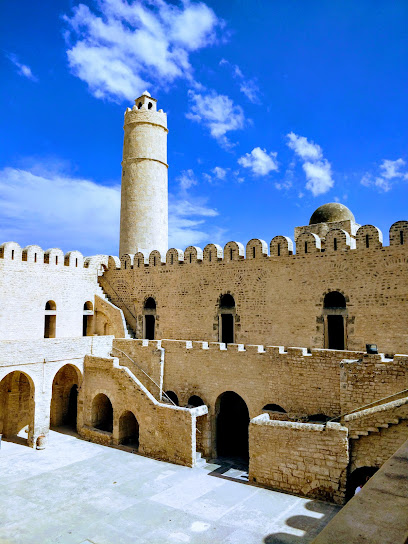
Sousse Archaeological Museum
Discover the captivating history and exquisite artifacts of ancient Tunisia at the Sousse Archaeological Museum, a key cultural attraction in Sousse.
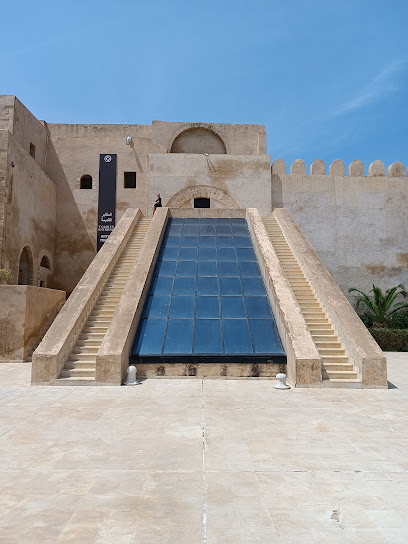
Great Mosque of Sousse
Explore the Great Mosque of Sousse, a stunning historical site that showcases Islamic architecture and the rich cultural heritage of Tunisia.
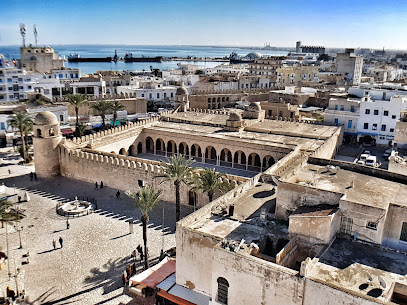
Stade Olympique de Sousse
Discover the excitement of Tunisian sports culture at Stade Olympique de Sousse, a premier venue for thrilling football matches and unforgettable events.
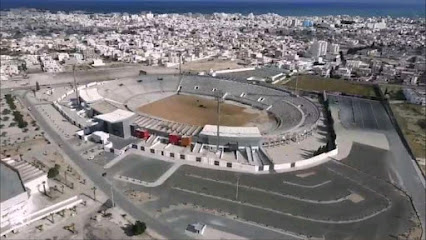
Museum Dar Essid
Immerse yourself in the vibrant history and culture of Tunisia at the Museum Dar Essid in Sousse, a captivating local history and art museum.
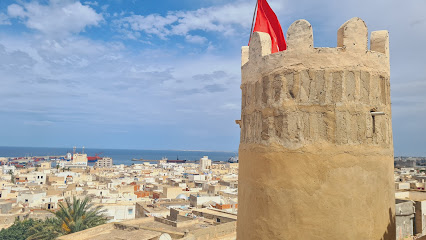
Parc HADHOOD
Experience endless fun and excitement at Parc HADHOOD, the ultimate amusement center in Hammam Sousse, Tunisia, where adventure awaits for everyone.
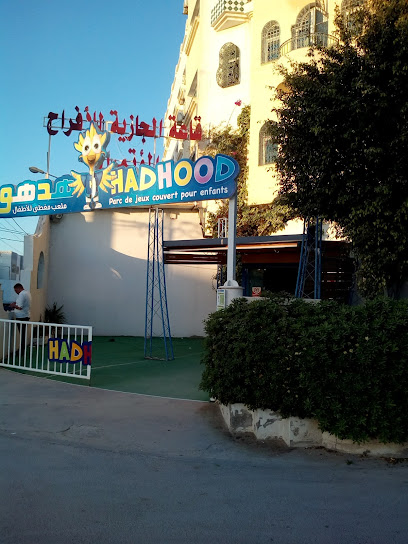
Bled el Arbi Sousse
Explore the historical richness of Bled el Arbi in Sousse, where culture and heritage come alive amidst vibrant local markets.
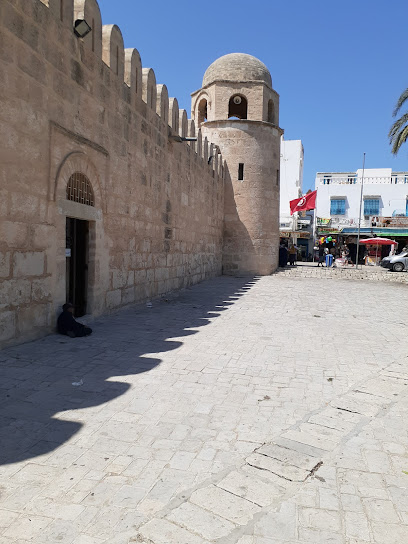
Statue Habib Bourguiba
Discover the Statue of Habib Bourguiba in Sousse, a powerful tribute to Tunisia's independence and a vibrant cultural hub for tourists.
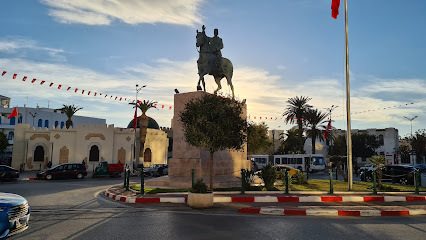
دار عم الطيب للفن المعاصر
Explore the vibrant world of contemporary Tunisian art at Dar Ammar, a cultural gem in the heart of Sousse.
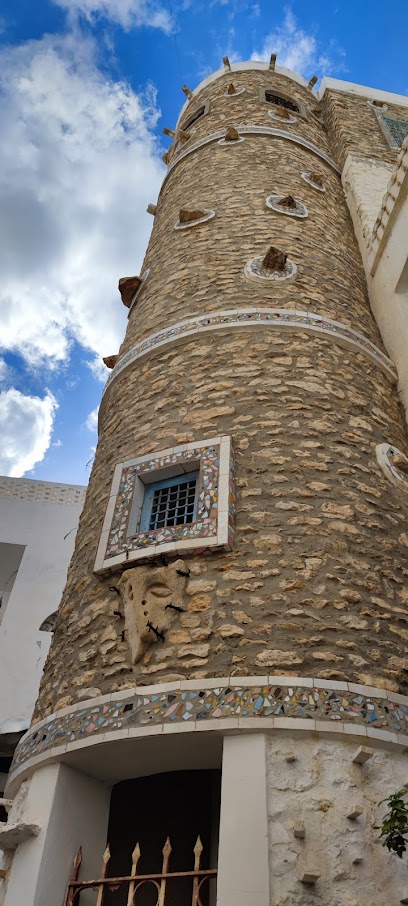
Sousse ولاية سوسة
Explore Sousse, Tunisia's coastal gem, where ancient history meets vibrant culture and stunning Mediterranean beaches.
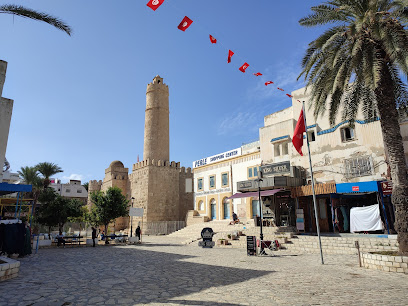
Zaouia Zakkak
Discover the serene beauty of Zaouia Zakkak in Sousse, a magnificent mosque showcasing Tunisia's rich Islamic heritage and architectural splendor.
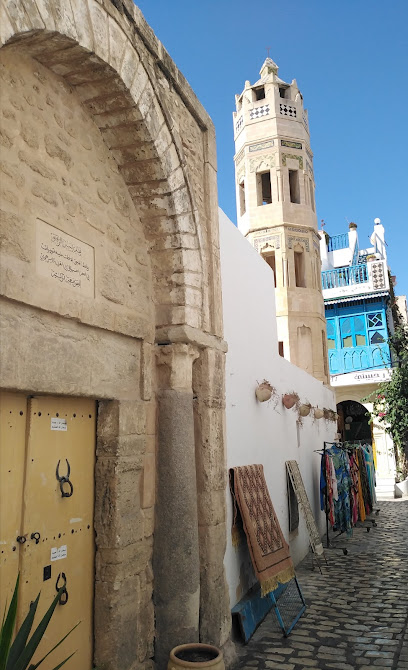
Les Catacombes de Sousse
Explore the mysterious depths of Les Catacombes de Sousse, a museum that unveils the ancient burial practices and rich history of Tunisia.
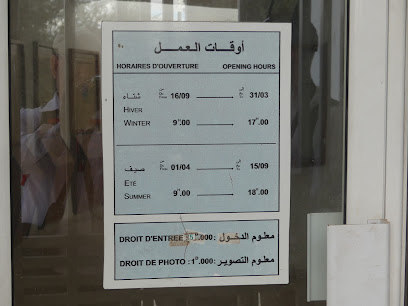
Les remparts de Sousse
Explore the ancient fortifications of Les Remparts de Sousse, a UNESCO World Heritage site showcasing Tunisia's rich history and stunning Mediterranean views.
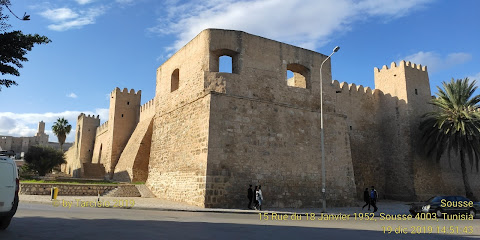
Monument des Martyrs
Explore the Monument des Martyrs in Sousse, a powerful symbol of Tunisia's history and resilience, offering stunning views and rich cultural significance.
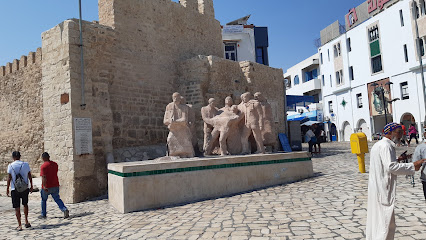
Eglise Saint Felix de Sousse
Explore Eglise Saint Felix de Sousse, a stunning church that embodies Tunisia's architectural beauty and rich cultural heritage.
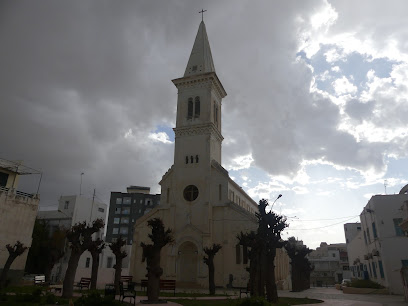
Unmissable attractions to see
Ribat of Monastir
Explore the Ribat of Monastir, a historic fortress and museum that offers a glimpse into Tunisia's rich past and stunning coastal views.
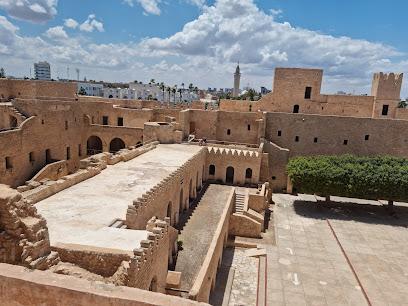
Mausoleum of Habib Bourguiba
Discover the Mausoleum of Habib Bourguiba in جمال, a stunning historical site honoring Tunisia's first president and a masterpiece of architectural beauty.
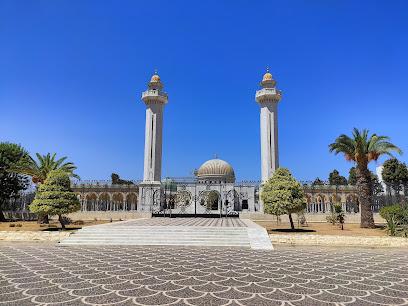
Hannibal Park
Explore the excitement of Hannibal Park, a lively amusement park in Hammam Sousse, perfect for families and thrill-seekers alike.
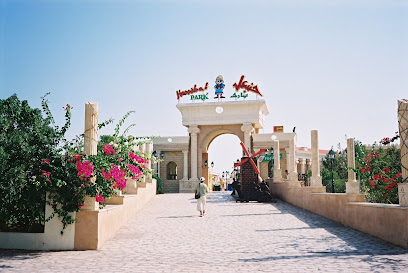
Sousse Archaeological Museum
Explore the Sousse Archaeological Museum, a cultural gem showcasing Tunisia's rich history through exquisite mosaics and ancient artifacts.
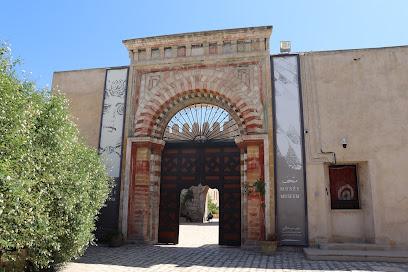
Bourguiba Mosque
Explore the Bourguiba Mosque in Monastir, a stunning example of Islamic architecture and a significant cultural landmark in Tunisia's historical narrative.
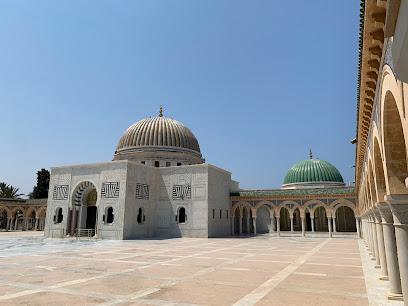
Port El Kantaoui
Explore Port El Kantaoui: A beautiful seaport in Hammam Sousse, Tunisia, offering stunning views, vibrant culture, and endless leisure activities.
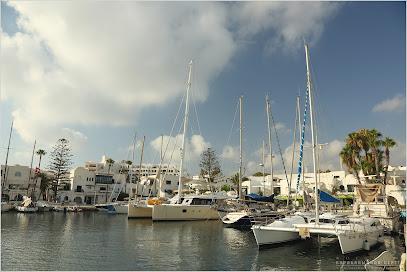
Musée magic eye 3D
Experience the enchanting world of optical illusions at Musée Magic Eye 3D in Sousse, Tunisia, where art and fun come together in interactive displays.
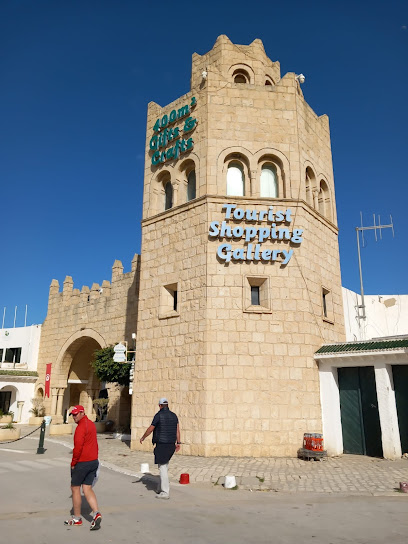
Marina Cap Monastir
Experience the beauty and culture of Marina Cap Monastir, a vibrant marina in Tunisia offering stunning views, delicious cuisine, and rich history.
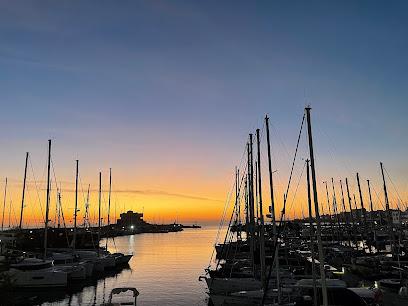
Museum Dar Essid
Explore Tunisia’s cultural heritage at Museum Dar Essid in Sousse, featuring exquisite artifacts and rich historical narratives.
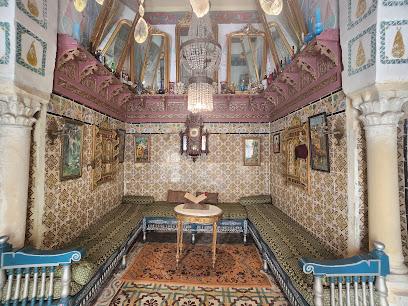
مرسى القنطاوي
Explore the enchanting Port El Kantaoui, a stunning coastal resort in Hammam Sousse with beautiful beaches, thrilling activities, and vibrant nightlife.
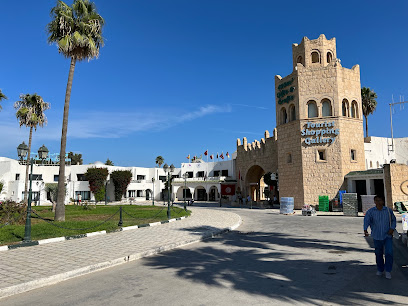
Promenade des Remparts
Explore the scenic Promenade des Remparts in Sousse, where history meets breathtaking coastal beauty and vibrant local culture.
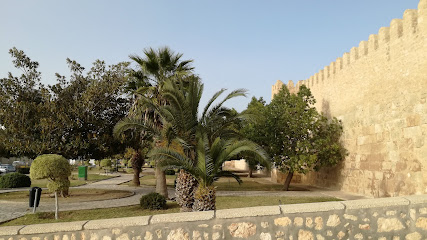
كرنيش بوجعفر سوسة
Explore Kurnish Boujafar in Sousse, a stunning tourist attraction offering scenic coastal views and rich cultural experiences in Tunisia.
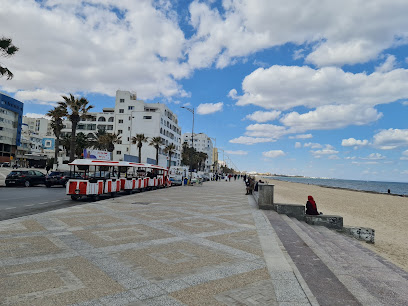
El kantaoui diving center
Explore the vibrant underwater world at El Kantaoui Diving Center in Hammam Sousse, perfect for divers of all levels looking for adventure.
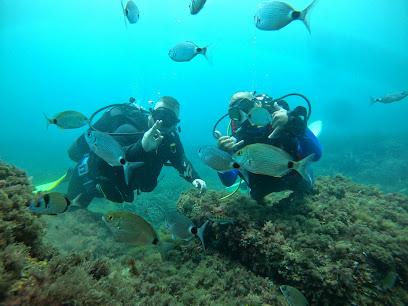
Museum El-Kobba
Explore the cultural tapestry of Sousse at Museum El-Kobba, showcasing the city's rich history and local heritage through captivating exhibits.
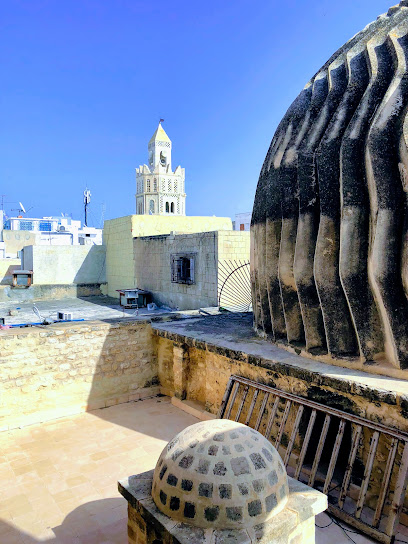
Bateau Pirate Touristique Hannibal
Discover the spirit of adventure aboard Bateau Pirate Touristique Hannibal in Sousse. A thrilling pirate-themed tour awaits you on the Mediterranean Sea.
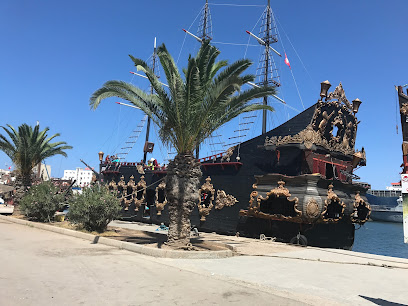
Essential places to dine
Mio Mondo Café
Discover Mio Mondo Café in Sousse - where exquisite pastries meet rich coffee and vibrant ambiance for an unforgettable culinary experience.
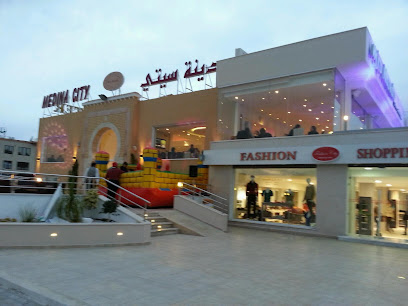
Restaurant Miam's Hammam Sousse
Discover authentic Tunisian cuisine at Restaurant Miam's in Hammam Sousse - where flavors meet hospitality.
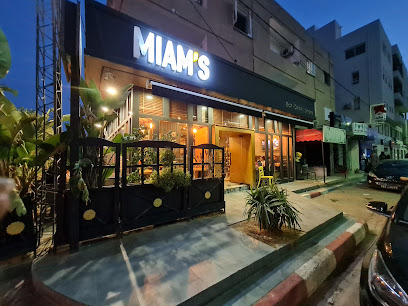
L’Aromate Restaurant - Pizzeria
Experience the authentic flavors of Tunisia at L’Aromate Restaurant - Pizzeria in Sousse.
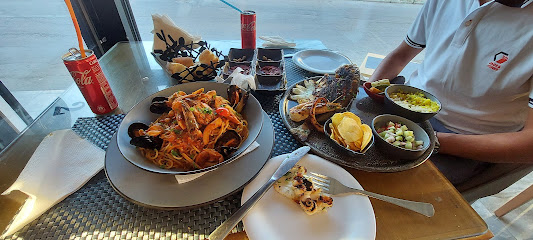
Planet Food
Discover exquisite cuisine at Planet Food in Sousse – where local flavors meet international delights along the scenic Corniche.
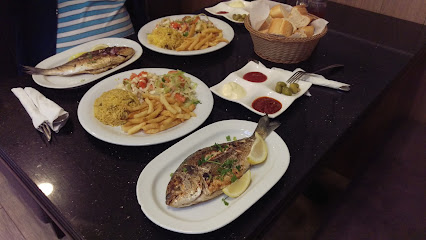
Restaurant l'escargot
Experience authentic French cuisine at Restaurant l'Escargot in Sousse - where exquisite flavors meet charming ambiance.
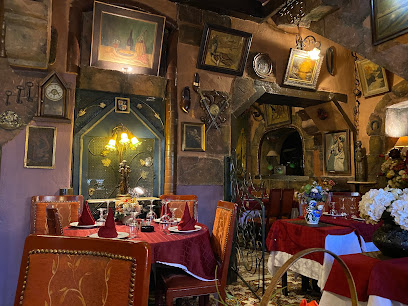
Restaurant Farmer's Steakhouse
Discover the flavors of Tunisia at Farmer's Steakhouse in Sousse - where tradition meets culinary excellence in every dish.
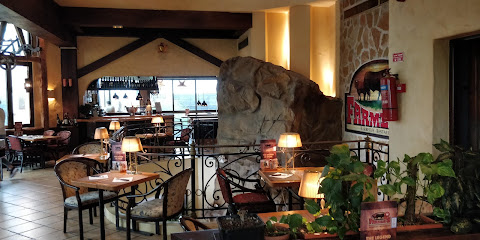
THE FIRST Coffee & Resto
Discover authentic Tunisian cuisine at THE FIRST Coffee & Resto in Sousse - where flavors meet hospitality.
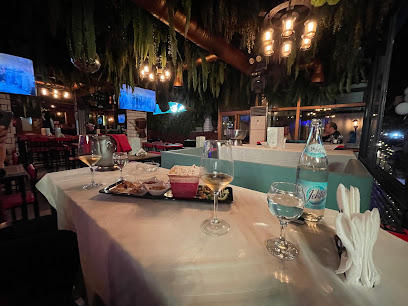
Coin d'Alma
Experience authentic Tunisian cuisine at Coin d'Alma in Sousse – where every dish tells a story of flavor and tradition.
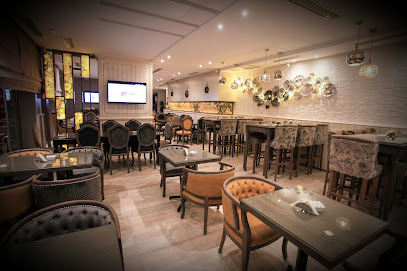
Restaurant du Peuple
Experience authentic Tunisian flavors at Restaurant du Peuple in Sousse – a culinary gem offering delightful dishes in a warm atmosphere.
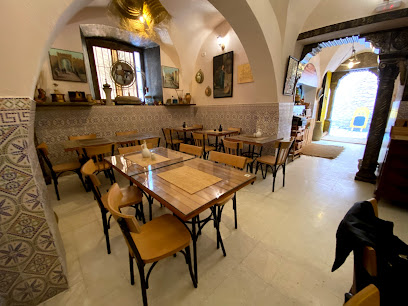
Restaurant Le QG
Savor authentic Tunisian cuisine at Restaurant Le QG in Hammam Sousse – a must-visit dining destination for every traveler.
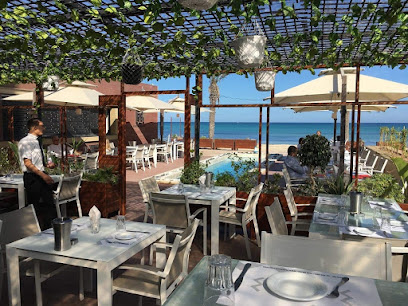
Bruschetta Restaurant
Experience the best of Italy in Sousse at Bruschetta Restaurant - where authentic flavors meet delightful ambiance.
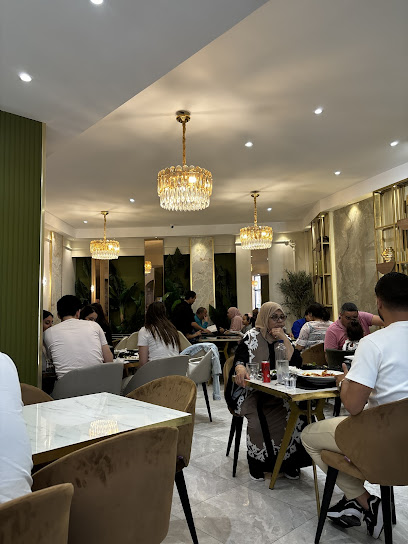
La Cabane
Discover La Cabane in Sousse for an unforgettable dining experience with authentic Tunisian flavors and international delights.
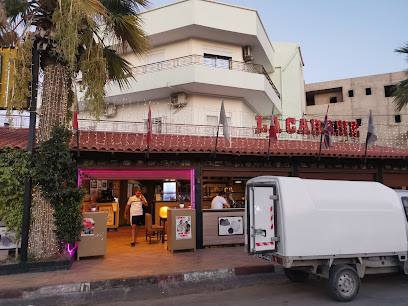
Restaurant Café Seles
Experience authentic Tunisian cuisine at Café Seles in Sousse, where flavor meets tradition in a warm and inviting atmosphere.
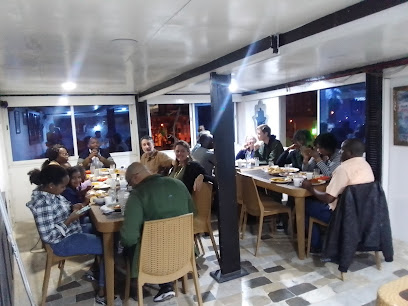
Mare Mar Ouahchi الوحشي
Experience the best of fast food with a Tunisian twist at Mare Mar Ouahchi in Sousse – where flavor meets convenience!
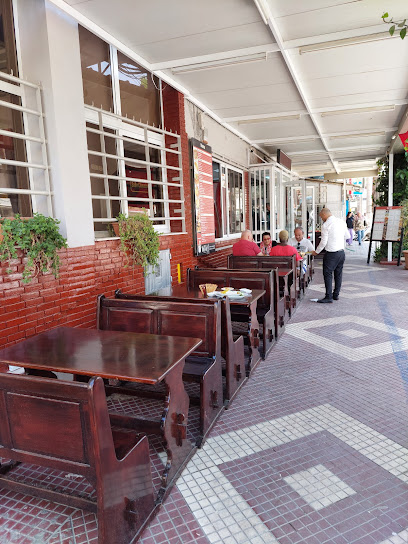
Caruso
Experience authentic Italian flavors at Caruso in Sousse – where every dish tells a story of culinary passion.
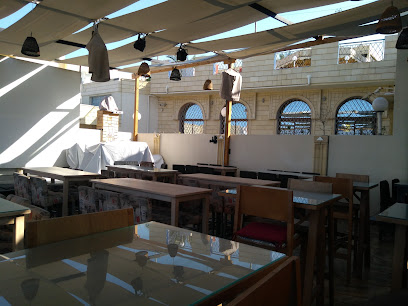
Markets, malls and hidden boutiques
Mall of Sousse
Explore the Mall of Sousse: Tunisia's vibrant shopping hub filled with trendy stores, delightful dining, and family-friendly entertainment.
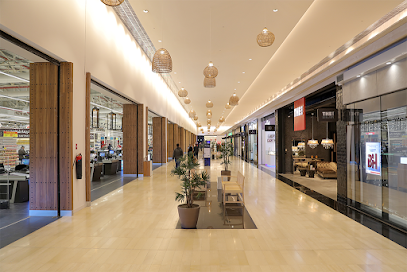
Soula Shopping Center
Experience the charm of shopping in Sousse at the Soula Shopping Center, where fashion, food, and fun come together.
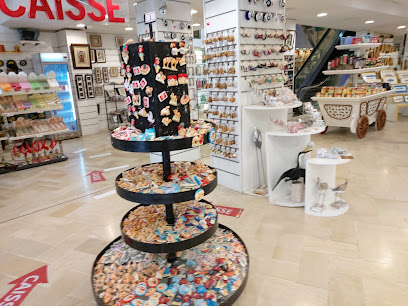
MEGASTORE GIFTS
Explore the vibrant Megastore Gifts in Hammam Sousse for unique souvenirs, local crafts, and an unforgettable shopping experience.
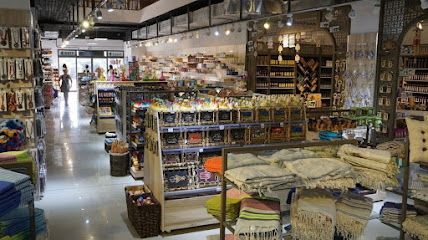
Papillon shopping center
Explore the vibrant Papillon Shopping Center in Sousse, Tunisia – a shopper's paradise filled with unique gifts, cosmetics, jewelry, and local flavors.
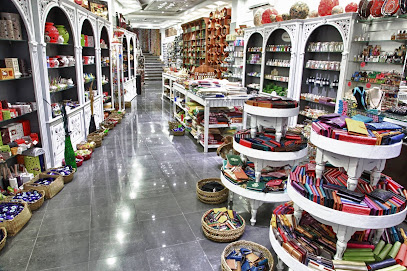
La médina de Sousse
Explore the vibrant streets of La Médina de Sousse, a UNESCO World Heritage Site filled with history, culture, and shopping delights.
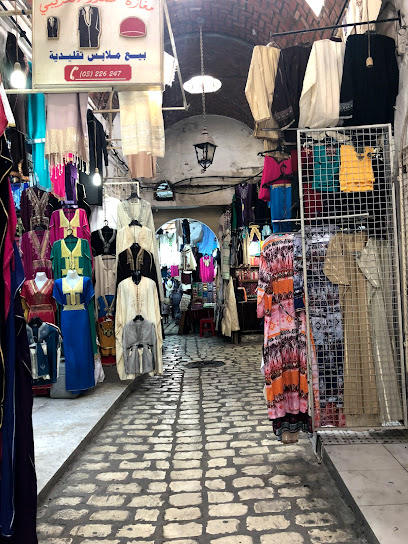
KING SILVER
Explore the finest silver jewelry at King Silver in Sousse, where tradition meets elegance in every handcrafted piece.

Galerie Mosaique Antique
Uncover the art of antiquity at Galerie Mosaique Antique in Sousse, where each piece tells a story of Tunisia's rich heritage.
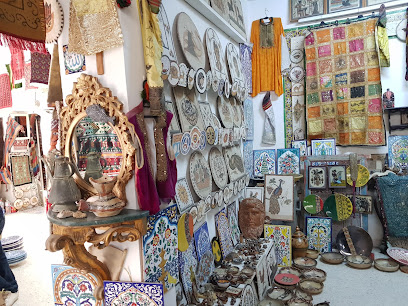
Urban vape cafe
Discover the ultimate vaping experience at Urban Vape Cafe in Sousse, offering a variety of vaporizers and a welcoming atmosphere for all enthusiasts.
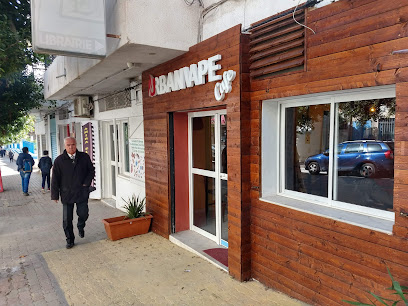
Perle Shopping Center
Discover the vibrant Perle Shopping Center in Sousse, where shopping, dining, and entertainment come together in a modern setting.
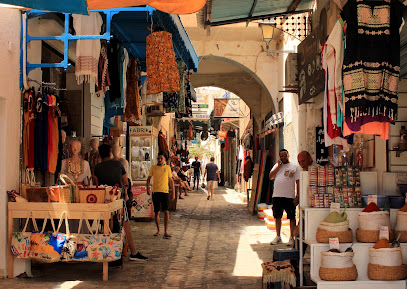
Boutique gift shop sousse
Discover unique clothing and handmade souvenirs at a charming boutique gift shop in Sousse, reflecting the rich culture of Tunisia.
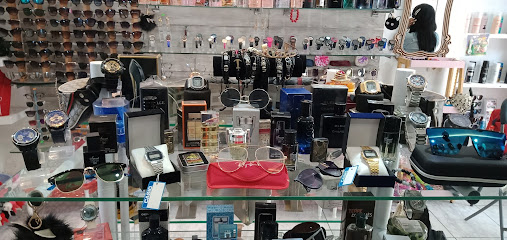
Pokh Design
Explore Pokh Design, Sousse's gem for hand-painted and handcrafted leather artworks that capture Tunisia's rich cultural heritage.
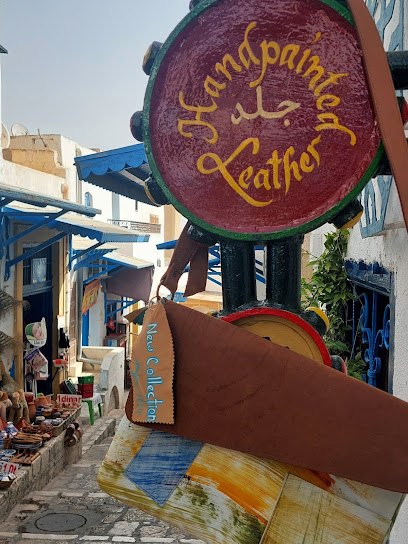
Big Ben
Discover the elegance and craftsmanship of exquisite timepieces at Big Ben, a premier watch store in Sousse, Tunisia.
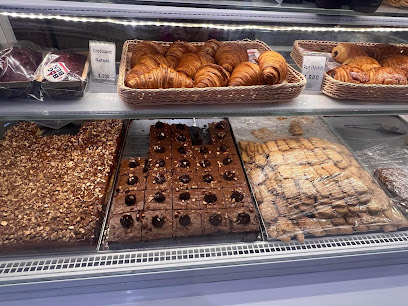
Protein shop Sousse
Visit Protein Shop Sousse for top-quality sports nutrition, protein supplements, and health snacks in the heart of Tunisia's captivating coastal city.
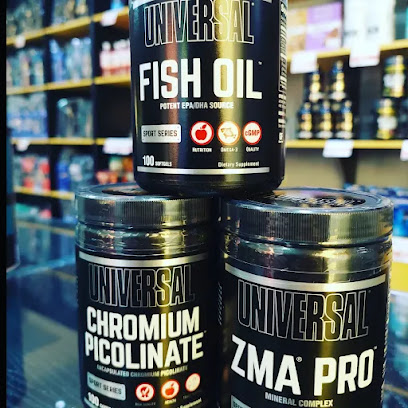
BOUTIQUE QUEEN
Boutique Queen in Sousse: Trendy clothing store offering unique fashion pieces for the stylish traveler.
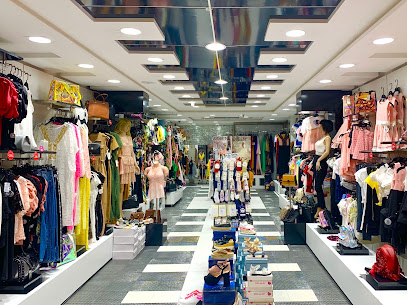
Zakhama Wissem Shop
Explore unique clothing at Zakhama Wissem Shop in Sousse, where local fashion meets vibrant culture.
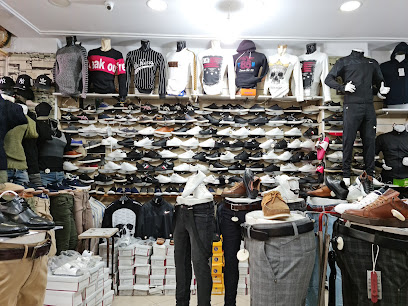
Essential bars & hidden hideouts
The Saloon - Restaurant & Lounge
Experience the vibrant nightlife at The Saloon, Sousse's top lounge, offering drinks, music, and unforgettable moments until dawn.
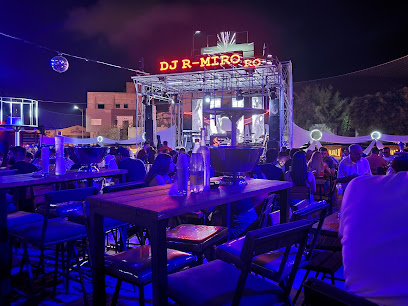
Jobi Beach
Experience the vibrant atmosphere of Jobi Beach in Sousse, Tunisia, where relaxation meets the beauty of the Mediterranean coastline.
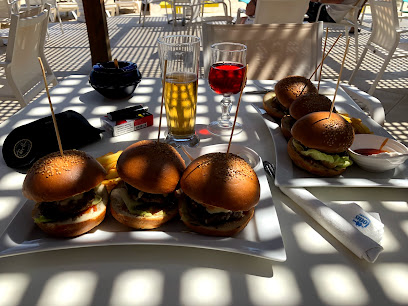
Legend's café restaurant
Discover the vibrant atmosphere and authentic flavors of Tunisia at Legend's Café Restaurant in Sousse, a must-visit for every traveler.
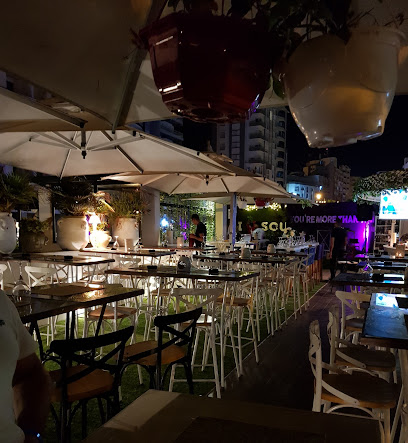
Rose and Crown
Experience the vibrant social scene of Sousse at the Rose and Crown, where lively atmosphere and great drinks await you.
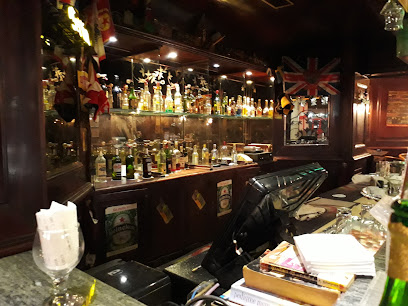
OCONNORS Irish Pub
Discover the vibrant atmosphere of OCONNORS Irish Pub in Hammam Sousse, where delicious Irish cuisine meets local charm and hospitality.
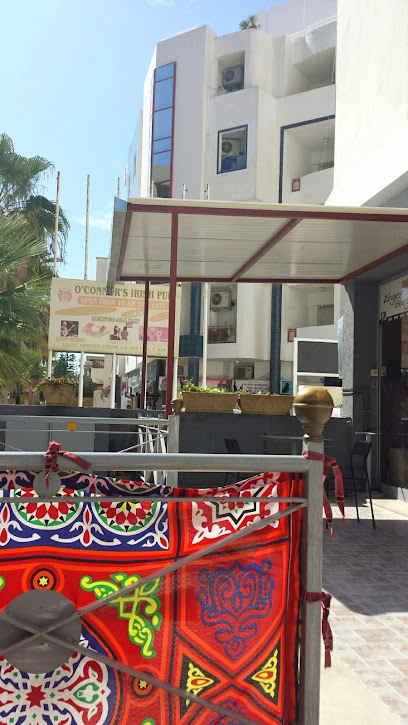
Le P’tit Bar de Sousse
Discover the lively atmosphere and local flavor at Le P’tit Bar de Sousse, a perfect spot for drinks and socializing in Sousse's vibrant nightlife.
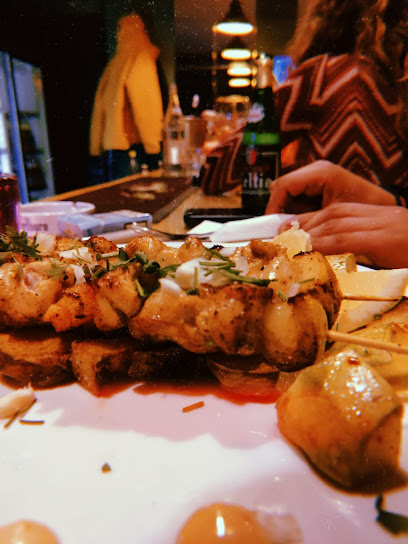
Bar Sorry Babushka
Experience the vibrant nightlife of Hammam Sousse at Bar Sorry Babushka, where local culture and delightful drinks meet in a charming atmosphere.
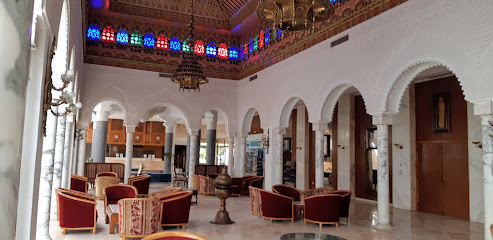
Paris cafe bar
Discover the essence of Parisian culture in the heart of Sousse at this charming cafe bar, a perfect blend of local flavors and vibrant atmosphere.
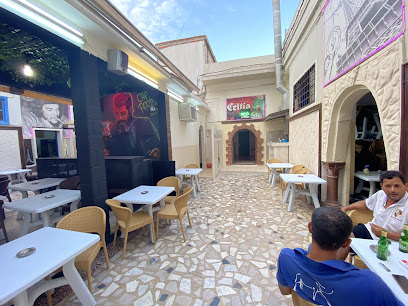
Barry's
Experience the vibrant nightlife at Barry's, a premier bar in Sousse, offering delightful drinks and a lively atmosphere for every traveler.
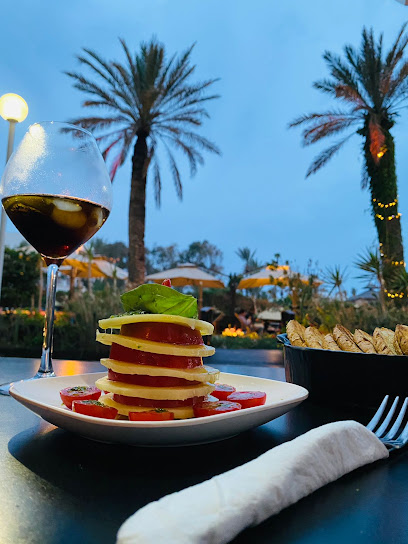
UBAR
Discover the vibrant nightlife of Sousse at UBAR, where great drinks and lively atmosphere create unforgettable evenings.
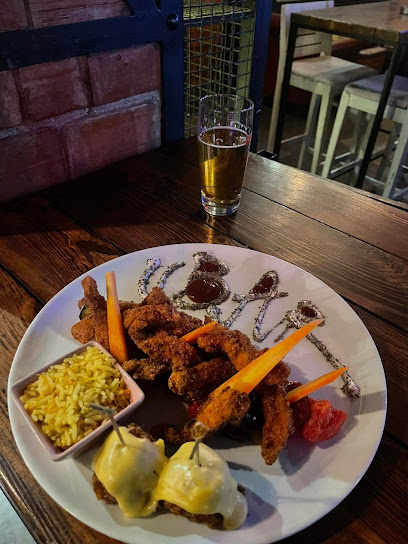
Mokis Restobar
Discover Mokis Restobar in Sousse, a vibrant wine bar offering a unique selection of wines and a lively atmosphere for all wine enthusiasts.
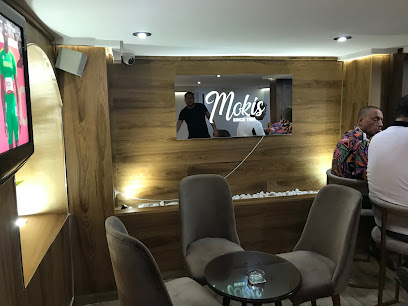
Bar Afterwork Plus Amore
Discover the lively ambiance and local flavors at Bar Afterwork Plus Amore, the ultimate nightlife destination in Sousse, Tunisia.
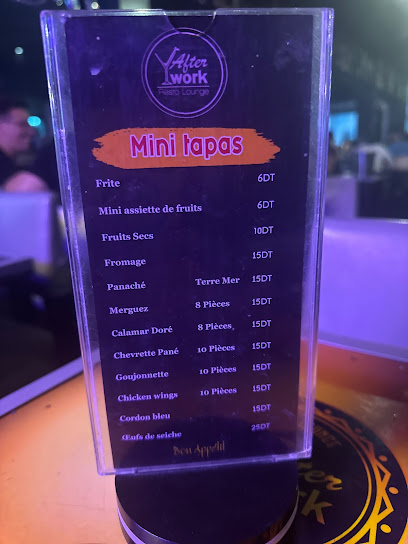
ARSLEN CLUB
Experience the vibrant nightlife at ARSLEN CLUB in Sousse, where lively music meets expertly crafted drinks in a stylish setting.
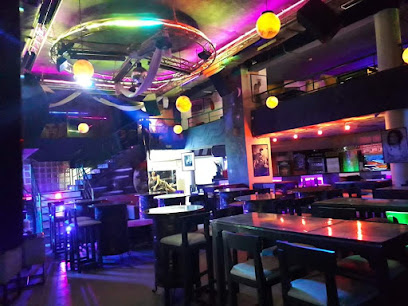
Zino Lounge Bar
Discover the chic ambiance of Zino Lounge Bar in Sousse, where every sip is a celebration of elegance and relaxation.
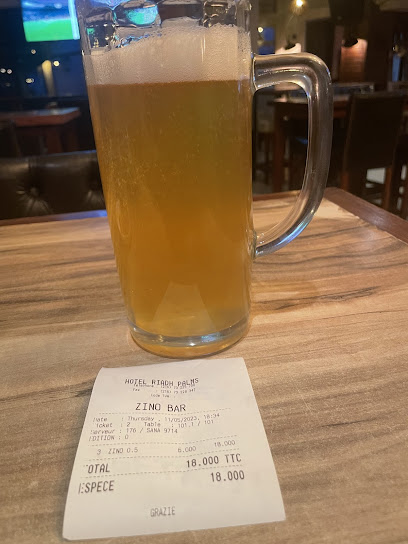
Local Phrases
-
- Helloمرحبا
[marhaba] - Goodbyeوداعا
[wada'an] - Yesنعم
[naam] - Noلا
[la] - Please/You're welcomeمن فضلك
[min fadlik] - Thank youشكرا
[shukran] - Excuse me/Sorryعذرا
[aadhara] - How are you?كيف حالك؟
[kayfa haluk?] - Fine. And you?بخير. وأنت؟
[bikhayr. wa'ant?] - Do you speak English?هل تتكلم الإنجليزية؟
[hal tatakallam al'injlizia?] - I don't understandلا أفهم
[la afham]
- Helloمرحبا
-
- I'd like to see the menu, pleaseأريد رؤية القائمة، من فضلك
[urid ru'ya alqaima, min fadlik] - I don't eat meatأنا لا آكل اللحم
[ana la akul allaham] - Cheers!في صحتك!
[fi sahtak!] - I would like to pay, pleaseأريد الدفع، من فضلك
[urid aldaff, min fadlik]
- I'd like to see the menu, pleaseأريد رؤية القائمة، من فضلك
-
- Help!مساعدة!
[musa'ada!] - Go away!انصرف!
[insarf!] - Call the Police!اتصل بالشرطة!
[itassil bialshurta!] - Call a doctor!اتصل بطبيب!
[itassil bitalib!] - I'm lostلقد ضللت
[liqad dalalt] - I'm illأنا مريض
[ana mareed]
- Help!مساعدة!
-
- I'd like to buy...أريد شراء...
[urid shira...] - I'm just lookingأنا فقط أتطلع
[ana faqat atatalla] - How much is it?كم الثمن؟
[kam althaman?] - That's too expensiveهذا غالي جدا
[hatha ghali jiddan] - Can you lower the price?هل يمكنك تخفيض السعر؟
[hal yumkinuk takhfiz alsar?]
- I'd like to buy...أريد شراء...
-
- What time is it?كم الساعة؟
[kam alsaa'a?] - It's one o'clockالساعة الواحدة
[alsaa'a alwahida] - Half past (10)العاشرة والنصف
[al'ashira walnusf] - Morningالصباح
[assabah] - Afternoonبعد الظهر
[ba'd aldhuhur] - Eveningالمساء
[almasa'] - Yesterdayأمس
[ams] - Todayاليوم
[alyawm] - Tomorrowغدا
[ghadan] - 1واحد
[wahid] - 2اثنان
[ithnan] - 3ثلاثة
[thalatha] - 4أربعة
[arba'a] - 5خمسة
[khamsa] - 6ستة
[sitta] - 7سبعة
[saba'a] - 8ثمانية
[thamania] - 9تسعة
[tase'a] - 10عشرة
[ashara]
- What time is it?كم الساعة؟
-
- Where's a/the...?أين هو/هي...؟
[ayn hu/hyi...?] - What's the address?ما هو العنوان؟
[ma hu al'unnwan?] - Can you show me (on the map)?هل يمكنك أن تريني (على الخريطة)؟
[hal yumkinuk an tureeni (ala alkharyta)?] - When's the next (bus)?متى الحافلة القادمة؟
[mata alhafilat alqadima?] - A ticket (to ....)تذكرة (إلى ...)
[tathkira (ila ...)]
- Where's a/the...?أين هو/هي...؟
History of Sousse
-
Sousse, known in antiquity as Hadrumetum, was founded by the Phoenicians in the 11th century BCE. It quickly became a major trading hub due to its strategic coastal location, serving as an important link between the Mediterranean and the African hinterlands.
-
During the Roman era, Hadrumetum flourished as a prominent city in the province of Africa Proconsularis. It gained significance not only for its agricultural richness but also as a vital military and naval base. The city was heavily involved in the Punic Wars, siding with Rome during the conflicts with Carthage.
-
Following the decline of the Roman Empire, Hadrumetum came under Byzantine control in the 6th century CE. The Byzantines fortified the city, developing it as a stronghold against the Vandals and later the Arab invaders. The remnants of Byzantine architecture are still visible in the region.
-
In the 7th century, Sousse fell to the Arab forces during their expansion across North Africa. It was renamed Sūsa and became part of the burgeoning Islamic world. The city was integrated into the Umayyad and then the Abbasid Caliphates, which brought about significant cultural and architectural developments.
-
During the 9th century, Sousse became one of the most important cities under the Aghlabid dynasty, which ruled Ifriqiya. The construction of the Ribat of Sousse, a fortified Islamic monastery, during this period is a testament to the city's strategic and religious importance. The Ribat remains one of the best-preserved examples of its kind in the Muslim world.
-
In the 12th century, Sousse was briefly occupied by the Normans of Sicily before being recaptured by the Almohads and later becoming part of the Hafsid dynasty's territory. During Hafsid rule, Sousse continued to prosper as a center of commerce and learning, evidenced by its thriving medina, which retains much of its medieval character.
-
Sousse came under Ottoman control in the 16th century, becoming part of the Ottoman province of Tunisia. The city benefited from the stability provided by Ottoman rule and saw the construction of numerous mosques, madrasas, and other public buildings that enriched its architectural heritage.
-
In 1881, Tunisia became a French protectorate, marking the beginning of a significant European influence on Sousse. The French introduced modern infrastructure, including railways and ports, which facilitated the growth of the city's economy. However, this period also saw the rise of nationalist movements seeking independence.
-
Following Tunisia's independence in 1956, Sousse emerged as a key city in the new republic. The city has since developed into a major tourist destination, renowned for its beautiful beaches, historic sites, and vibrant culture. The medina of Sousse, a UNESCO World Heritage Site, continues to attract visitors from around the world.
Sousse Essentials
-
Sousse is accessible via Habib Bourguiba International Airport, located about 20 km from the city. The airport serves various international and domestic flights. Alternatively, Tunis-Carthage International Airport, around 140 km away, offers more flight options. From either airport, you can take a taxi, rent a car, or use airport shuttle services to reach Sousse. The city is also well-connected by train and bus services from Tunis and other major cities in Tunisia.
-
Local transportation in Sousse includes taxis, buses, and louages (shared taxis). Taxis are metered and relatively inexpensive, making them a convenient option for getting around the city. Buses are a more economical choice, with routes covering most of Sousse. Louages provide a quick way to travel to nearby towns and cities. For a more immersive experience, consider renting a bicycle or walking, especially within the Medina, where many attractions are located close to each other.
-
The official currency in Tunisia is the Tunisian Dinar (TND). Credit cards are widely accepted in hotels, restaurants, and larger stores, but cash is preferred in smaller shops and local markets. ATMs are readily available throughout Sousse, and it's advisable to carry some cash for convenience. Currency exchange services are available at airports, banks, and authorized exchange offices.
-
Sousse is generally safe for tourists, but it is wise to take standard precautions. Avoid isolated areas after dark and keep an eye on your belongings in crowded places. The Medina is a popular spot for tourists and can be crowded, so be vigilant against pickpockets. Specific areas with higher crime rates include the outskirts of the city and some poorly lit neighborhoods. Always use registered taxis and avoid accepting rides from strangers.
-
In case of an emergency, dial 197 for police assistance, 190 for medical emergencies, and 198 for fire services. Major hospitals in Sousse include Farhat Hached University Hospital and Sahloul Hospital, both of which provide comprehensive medical services. Pharmacies are widely available, and many operate 24/7. It's advisable to have travel insurance that covers medical emergencies.
-
Fashion: Do dress modestly, especially when visiting religious sites. Avoid wearing revealing clothing. Religion: Do respect local customs and traditions. Always cover your head when entering mosques. Public Transport: Do be respectful and give up your seat to elderly passengers. Don't eat or drink on public transport. Greetings: Do greet people with a handshake. Men should wait for women to initiate handshakes. Eating & Drinking: Do try local delicacies and accept food offerings graciously. Don't refuse hospitality, as it is considered impolite.
-
To experience Sousse like a local, visit the traditional markets (souks) in the Medina, where you can buy spices, textiles, and crafts. Engage with locals, who are often friendly and eager to share their culture. Try the local cuisine at family-run restaurants or street stalls. Don't miss the Ribat of Sousse, an ancient fortress offering stunning views of the city. For a unique experience, take a stroll along the Corniche, a seaside promenade popular with locals.
Trending Landmark in Sousse
-
Ribat of Sousse
-
Sousse Archaeological Museum
-
Great Mosque of Sousse
-
Stade Olympique de Sousse
-
Museum Dar Essid
-
Parc HADHOOD
-
Bled el Arbi Sousse
-
Statue Habib Bourguiba
-
دار عم الطيب للفن المعاصر
-
Sousse ولاية سوسة
-
Zaouia Zakkak
-
Les Catacombes de Sousse
-
Les remparts de Sousse
-
Monument des Martyrs
-
Eglise Saint Felix de Sousse
Nearby Cities to Sousse
-
Things To Do in Monastir
-
Things To Do in Hammamet
-
Things To Do in Tunis
-
Things To Do in Sfax
-
Things To Do in Bizerte
-
Things To Do in Djerba
-
Things To Do in Annaba
-
Things To Do in Tozeur
-
Things To Do in Xlendi
-
Things To Do in Gozo
-
Things To Do in Marsalforn
-
Things To Do in Xewkija
-
Things To Do in Xaghra
-
Things To Do in Mellieha
-
Things To Do in Mgarr













